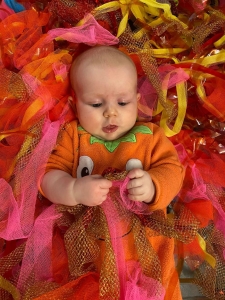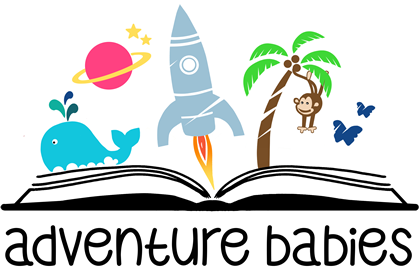Why are sensory development classes like Adventure Babies so good for your baby?
Our classes are designed to support sensory development in babies and toddlers and are crammed full of activities to support this growth in a fun and engaging way. Sensory development refers to the process through which children acquire and refine their ability to perceive and interpret sensory information from their environment. It involves the maturation and integration of the five main senses. Providing an environment and activities full of Different textures, sounds, colours, tastes and smells are essential for babies’ development for several reasons:
- Sensory Stimulation: Diverse textures and colours engage a baby’s senses, promoting sensory development. Touching, feeling, and exploring various textures and colours help babies refine their sense of touch, sight, and even taste.
- Cognitive Development: Exploring different textures and colours encourages cognitive development. Babies learn to distinguish between objects and understand cause-and-effect relationships.
- Fine Motor Skills: Manipulating objects with various textures and colours improves fine motor skills. Babies develop dexterity and hand-eye coordination as they explore objects with different attributes.
- Visual Stimulation: Bright and contrasting colours are visually stimulating for babies, aiding in the development of their visual acuity and perception.
- Creativity and Curiosity: Exposure to various textures and colours sparks a baby’s curiosity and creativity. It encourages them to explore, experiment, and learn about the world around them.
- Emotional and Social Development: Colourful and textured toys often provoke emotional responses, promoting social interactions as babies engage with the people around them during play.
Incorporating a variety of textures and colours into a baby’s environment and playtime can enrich their overall sensory and cognitive experiences, supporting their holistic development. Sensory development is especially important during early childhood, as it forms the foundation for various cognitive, motor, and social skills.










